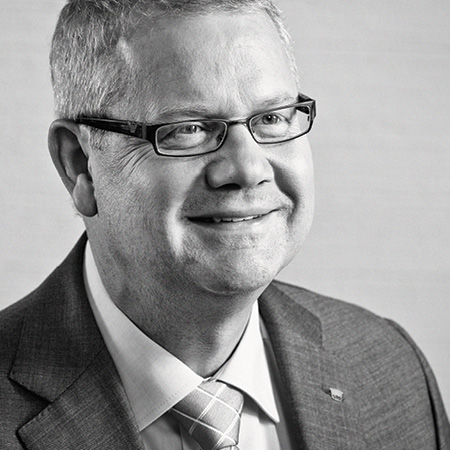As a new day dawns in the Namib desert in southern Africa, a strange little beetle is climbing the misty ridges of the sand dunes. After a while he stops and bows to the sand so that he is virtually standing on his head like a yogi saluting the sun. What he is actually doing, however, is having a cooling drink as the condensation he’s collected from the mist runs between the tiny ridges on his back and straight into his mouth.
He’s known as a fog-basking beetle and is a true natural wonder. For Sto researchers, he’s also an inspiration. When developing a new exterior paint that would repel water, the team mimicked the microstructure of the beetle’s shell to create what they call ‘Dryonic Technology’, a world first. Also in a nod to nature, the quick-drying façade paint is carbon neutral.
Sto is no stranger to innovation, with its roots firmly in new ideas and state-of-the-art alternatives.
“The company was founded in 1955 by Fritz Stotmeister,” says current Spokesman of the Executive Board Rainer Hüttenberger. “He started producing cement-free renders; that was his speciality. It was a new product, completely innovative. Before that people used mineral-based solutions and he introduced cement-free products along with the chemistry that gave these renders different characteristics, and they were very well accepted in the industry.”
The 1960s saw the business grow not only in Germany, but also in international markets due to exports. In the 1970s Sto established its first subsidiaries abroad: in Switzerland, Austria and also in the US. Substantial growth in the 1980s contributed to the decision to change the legal structure of the company in 1988. This was in preparation for publicly listing the company on the stock exchange. It was also at this time that Jochen Stotmeister, the founder’s eldest son, took over as CEO.
The next major milestone came in 1992 when Sto floated on the stock market, which arose from the need to finance growth potential in eastern Germany. Rainer explains: “The wall had already come down in 1989, reunifying East and West Germany and of course that opened up enormous opportunities for Sto to invest in sales and production in the former East. In the 2000s in Germany the economy slowed down after the boom of the 1990s—just a logical correction as part of a cycle. An important date for Sto was 2002, when we took over Ispo, one of our biggest competitors in Germany. That was a big acquisition that gave Sto a tremendous boost in the international markets as well as at home.”

